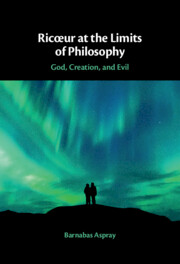
- Cited by 2
-
Cited byCrossref Citations
This Book has been cited by the following publications. This list is generated based on data provided by Crossref.
Aspray, Barnabas 2023. Faith, science, and the wager for reality: Meillassoux and Ricœur on post-Kantian realism. International Journal of Philosophy and Theology, Vol. 84, Issue. 2, p. 133.
2023. Books Received. Reviews in Religion & Theology, Vol. 30, Issue. 1-2, p. 113.
- Publisher:
- Cambridge University Press
- Online publication date:
- August 2022
- Print publication year:
- 2022
- Online ISBN:
- 9781009186735
- Subjects:
- History of Philosophy, Philosophy of Religion, Religion, Philosophy


